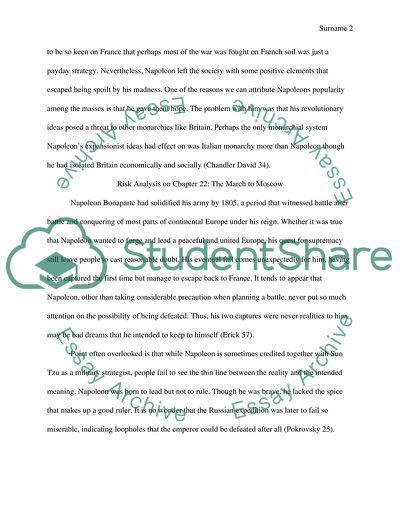Cite this document
(The Reign of Napoleon Bonaparte Book Report/Review, n.d.)
The Reign of Napoleon Bonaparte Book Report/Review. Retrieved from https://studentshare.org/history/1760162-book-report-and-risk-analysis
The Reign of Napoleon Bonaparte Book Report/Review. Retrieved from https://studentshare.org/history/1760162-book-report-and-risk-analysis
(The Reign of Napoleon Bonaparte Book Report/Review)
The Reign of Napoleon Bonaparte Book Report/Review. https://studentshare.org/history/1760162-book-report-and-risk-analysis.
The Reign of Napoleon Bonaparte Book Report/Review. https://studentshare.org/history/1760162-book-report-and-risk-analysis.
“The Reign of Napoleon Bonaparte Book Report/Review”, n.d. https://studentshare.org/history/1760162-book-report-and-risk-analysis.


